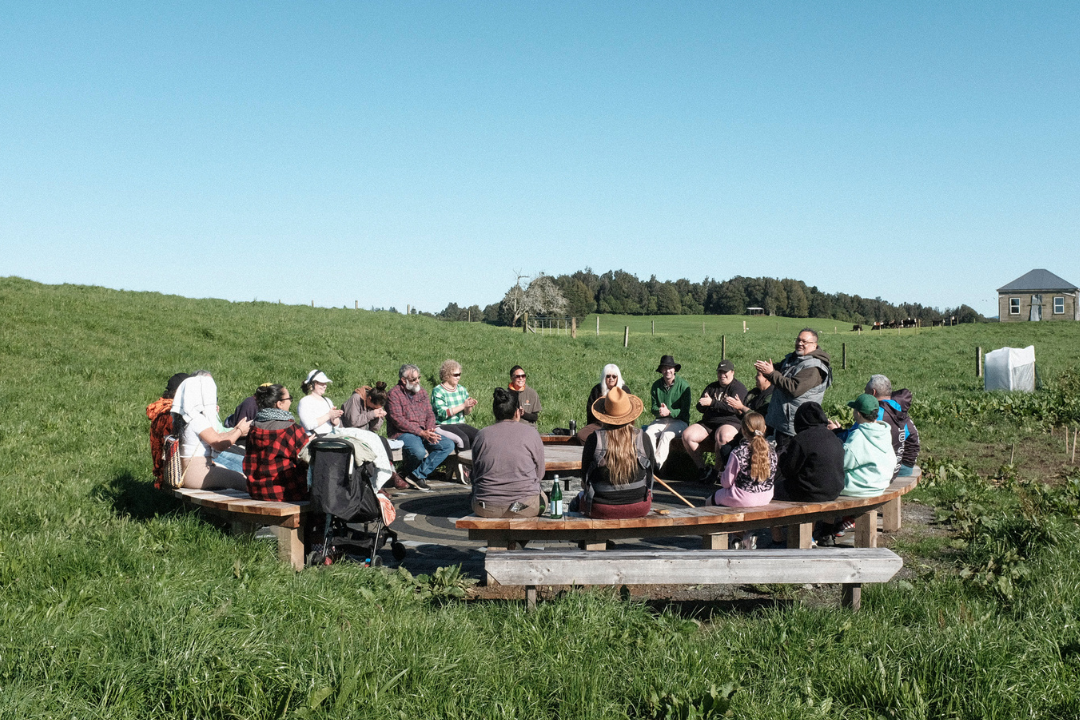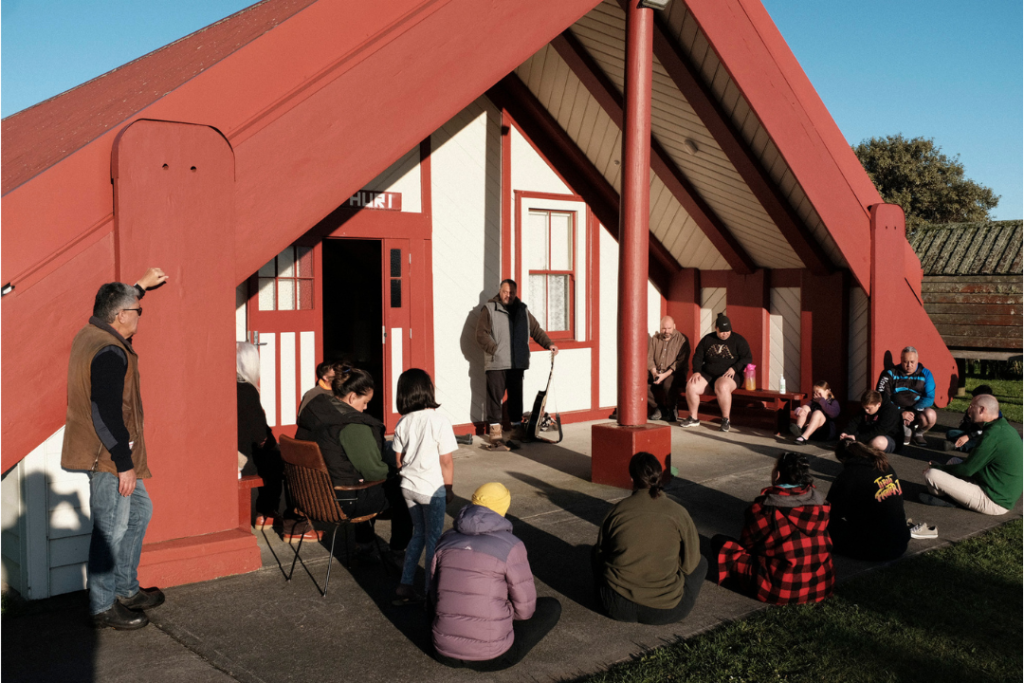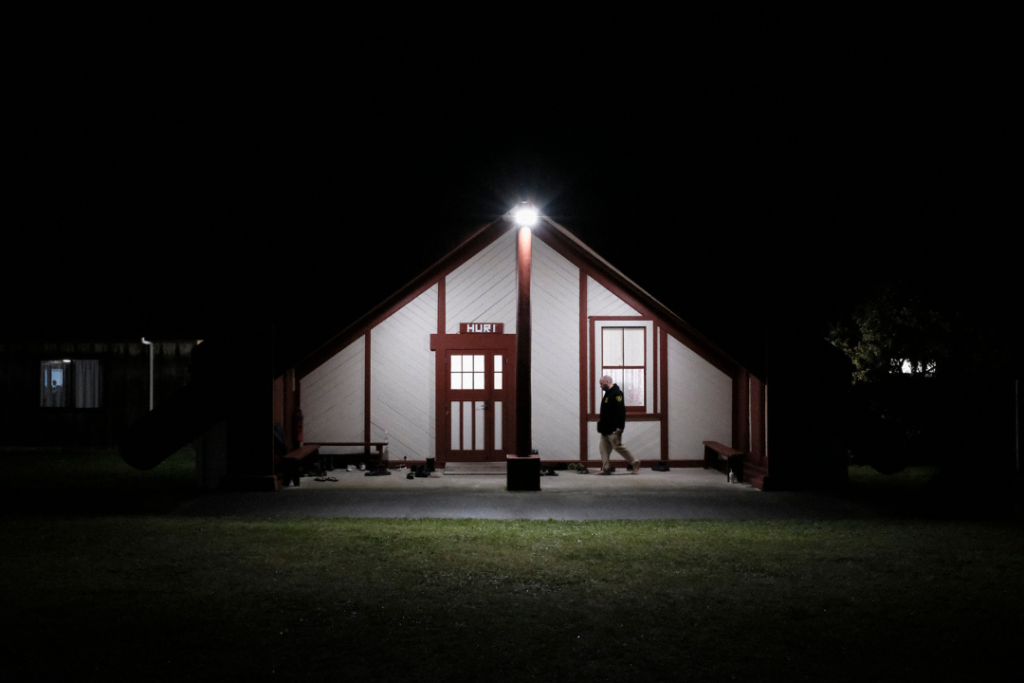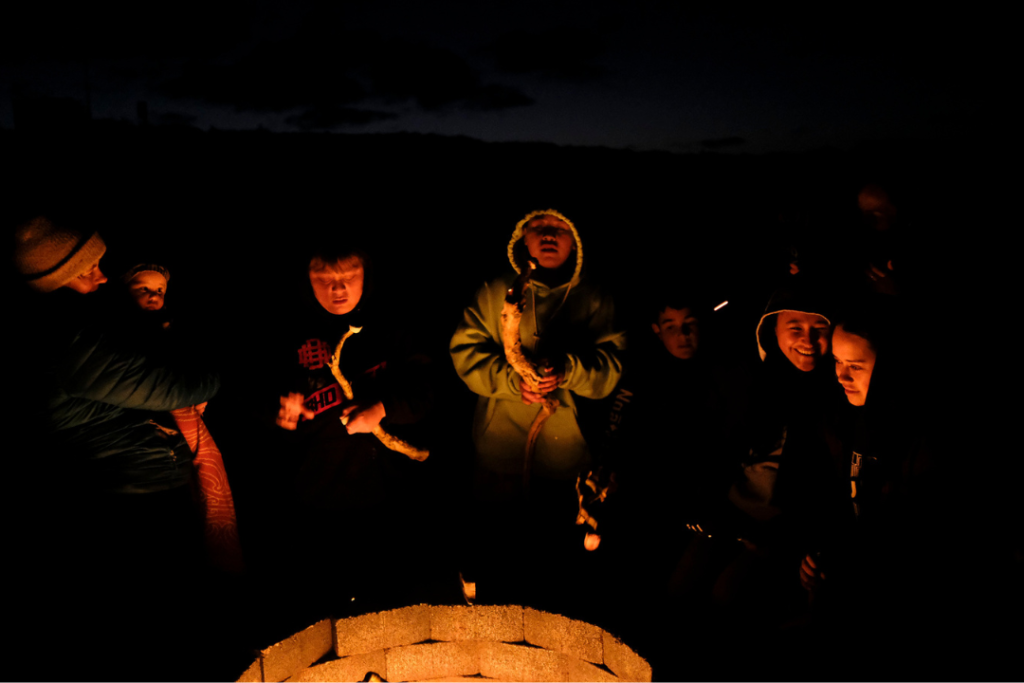
30 Oct Te Kawa o Te Ora Wānanga
“Māku anō hei hanga tōku nei whare. Ko ngā pou o roto, he māhoe, he patatē, ko te tāhūhū he hīnau. Me whakatupu ki te hua o te rengarenga, me whakapakari ki te hua o te kawariki” – Kīngi Tāwhiao
These words recited by Kīngi Tāwhiao were reiterated by our pou tikanga, Ruia Aperahama, in the wharenui of Pikitū marae in October. I sang the second half of this kōrero in a song I learned at intermediate. I didn’t understand what I was singing at the time, but all these years later I hear them again and I recognise the words almost immediately.
We were staying in Te Waotū for Te Kawa o Te Ora Wānanga facilitated by Te Kōmata o Te Tonga, The Deep South Science Challenge and their team. Māori research groups, whānau, marae and community representatives had arrived to share their climate change kaupapa. It was a beautiful and much needed opportunity for whanaungatanga and inspiration as we watch the implications of climate change driven by settler colonialism continue to wreak havoc on our kāinga.
I’ve been in the “climate space” for just over five years, from facilitating rangatahi wānanga around climate change, to co-creating Auckland Council’s rangatahi climate action plan; attending the United Nations Forum on Climate Change In Madrid in 2019 with Te Ara Whatu, to publishing a book chapter in Climate Aotearoa. But being in the wharenui at Pikitū with Māori researchers and whānau from around Aotearoa, united largely in our understanding of climate change as a settler colonial creation, was by far the most at home I have ever felt in this movement.

The need for whānau, hapū and marae-led climate action was clear. It was the baseline. We didn’t have anything to prove to one another, not regarding our scientific backgrounds or our evidence. After all, we have 1,000 years of evidence, and the evidence tells us that as tangata whenua we know our local places better than anyone and perhaps, more importantly, we are obligated to them in a way that no one else will ever be.
In the time we have been part of this research alongside Southern Kaipara marae, supporting them to grow their research capacity as they envision local kai systems again, it has become abundantly clear to me just how under-resourced they are. Not only that, but how systemically neglected and even obstructed marae are from doing what they were made to do. They are occupying the most tenuous of intersections as the law corners them into poorly fitted business structures while whānau try their best to maintain their obligations under tikanga.
This time around, the kōrero by Kīngi Tāwhiao takes on new meaning. I understand through Ruia’s kōrero that the Māhoe, the Patate and Hinau mentioned are not exactly the first things you would choose to build a whare. They are used for the most temporary of shelters. Tāwhiao was sharing this kōrero after the British invasion of Waikato in the 1860s. It seems it was a declaration of their resolve, and their resourcefulness in the face of unimaginable circumstances.
As we, my partner and I, navigate in our own life the complexities of marae, I am reminded that whānau and marae were targeted deliberately as epicentres for colonial violence. To collapse the whānau is to collapse the entire social fabric of Māori society. It was and is deliberate and purposeful. What we call climate change today are but the reverberations of this collapse echoing into present and future generations. It therefore goes without saying that the hardest — yet most meaningful — mahi is with our whānau and on our marae by extension.


Our whānau and marae have lost so much. They need resources, they need policy changes that fit (or better yet, none at all). They need the recognition they deserve. They are social services. They are institutions of education and research. They are civil defence centres. They are places where our tamariki dream. They are wharekai and when it really counts they hold our loved ones who have passed before all else.
The words from that waiata run through my head over and over for the entire wānanga. That is the power of waiata I guess, a vessel for all the seeds we carry with us until they are ready to open. I think about our whānau and our marae, the Patatē, the Hinau, the Māhoe, those resources that are not first pickings for building whare. And yet, here we are, showing up with what we have; equipped with the gifts that the land and water can afford to us, that have never left us, even in their own despair. We find our strength there. Koia rā, Te Kawa o Te Ora.



